Thomas E. Ricks's Blog, page 179
June 6, 2012
David Sanger's 'Confront and Conceal' made me wonder: Should Barack Obama be seen as our first Asian president?
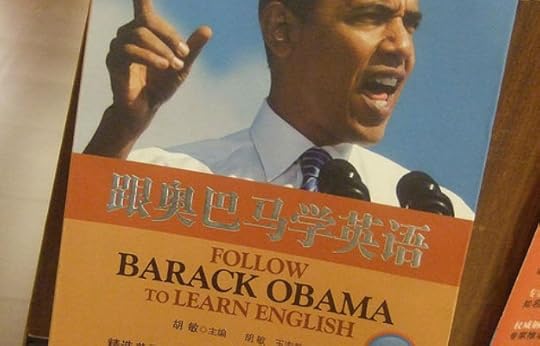
Here is a link to my review
in today's New York Times of David
Sanger's new
book on President Obama's foreign policy. As I say in the review, the
strongest part of the book is the stuff about the joint Israeli-American
cybercampaign against the Iranian nuclear infrastructure. (Btw, the copyeditor
for the book review told me while editing it that she had checked and this is
the first time the Times has used the
word "cybercampaign" to describe a series of cyberattacks, which surprised me.)
An interesting side observation in the book is Sanger's
comment that Obama's "legendary self-control .
. . makes him seem like a politician from a more buttoned-down,
controlled Asian environment."
I wonder: Is Obama actually our first Asian
president?
Three terms that wouldn't occur to me in describing the U.S.-Pakistan relationship
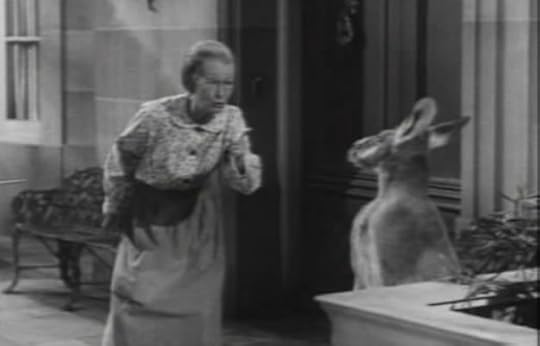
"We are trying to have an open,
transparent, and mutually beneficial relationship with the U.S. based on our
national interest," the Pakistani prime
minister told officers at that country's Command and Staff college. Well, that
is good news!
But then I read more of his comments and I realized Prime
Minister Gilani probably was engaging in what one of my sisters used to call
"grandma talk," to signify when my mother would say the opposite of what she
actually meant (e.g., "You look thin!"). For example, the Pak PM said, "we
want to play our role in the stability and peace in Afghanistan." And he said
he believes that "our children and the generations to follow will lead a
peaceful and productive life." Just use the Grandma interpreter, and you
will understand what he is saying.
No matter what Gentile and others wish, counterinsurgency just isn't going away
By Col. Robert Killebrew, USA (Ret.)
Director, Best Defense office of Market Garden studies
Even
as the war in Afghanistan continues to boil, the defense intellectual crowd has
wandered into an unnecessary and counterproductive debate about whether the
United States can avoid being involved in future counterinsurgency wars. "Unnecessary and counterproductive" is an appropriate
description of a largely contrived argument that distracts brainpower from
focusing on the real issue -- the changing nature of warfare in the emerging
century.
Of course the U.S. is going to be involved in counterinsurgency
in the future, just as we will be involved in all kinds of wars, period.
Insurgency is one of the oldest forms of warfare -- an uprising against a
government. But the terms under which rebellions are put down are
changing fast. Until very recently, the Westphalian attitude of the times
reinforced the authority of governments to suppress internal rebellions without
too much regard to sensitivities or legal restraints; both the American revolution and Napoleon's war on the Iberian Peninsula, for example, featured
insurgencies that were brutally suppressed by regular forces, but there was no
thought of holding commanders -- much less governments -- responsible for brutal
reprisals.
All that is changing as the world is changing. Nuremburg mattered a lot.
The WWII Germans felt no need for a counterinsurgency doctrine -- their
reaction to resistance in occupied countries was just to round up hostages and
shoot them -- but after the war some commanders were held to account despite the
argument that they were only obeying orders, a legal landmark. Punishing
commanders for massacres was not only simple justice, but an indication that
civilians were no longer just an incidental backdrop to a war. Rather individuals
began to be regarded as having rights that continued even during warfare, and even when they rise against
their rulers. That principle of the universality of human rights in war
is a historic change that is now considered applicable even in modern struggles against the medieval brutalities of al
Qaeda or the Taliban. In the 21st century, international law is
struggling to replace the Westphalian compact as the new firebreak against
indiscriminate barbarism.
This is the nub of the challenge of counterinsurgency (or COIN, as it is known
by its unfortunate acronym). People may rise in rebellion against their
government, or against the government of a conquering power, but the
government's reaction can no longer be to slaughter them wholesale -- as is
happening now in Syria -- for two reasons. First, sanctions to punish
indiscriminate killing are spreading and increasingly effective, as the Syrian
leadership will eventually learn. This is the emergence of the new
sensibility of human rights, which will accompany widespread political changes
in the new century (as we are seeing today in the Arab world). Second,
and more practically, killing alone doesn't work against a determined
opposition -- never has, in fact. Insurgency, which stems from political
dissatisfaction, ultimately requires a political solution, so the greatest part
of any successful COIN campaign requires political solutions that address the
fundamental issue that started the insurgency in the first place, while
security forces -- both military and, increasingly, police -- try to contain
violence and drive it down to tolerable levels.
All this can frustrate soldiers when they get tasked to fight insurgents under
restrictive rules of engagement and with little backing from the political
class. An American military that in the 1990s trained for violent
high-tech short wars has been understandably frustrated to find itself bogged down
in an inconclusive, decades-long war that its political leadership has either
misunderstood or backed away from. The "COIN is dead" school of
military thought is a reaction to that frustration -- and to the damage that our
protracted focus on counterinsurgency has done to other, essential military
capabilities -- but it is wrongheaded for a number of reasons.
First, insurgencies aren't going away, and the United States will fight more of
them. For a variety of reasons, populations and individuals today are more
empowered than ever before, and governments are under more pressure to meet the
expectations of their people. Political dissatisfaction, mass migration,
widespread armaments, and crime are producing an international landscape that
will challenge weak governments for decades, and often insurgencies will be
supported by outside powers hostile to the United States or our friends.
Aggression by insurgency is an old strategy that will recur.
Second, because they're hard doesn't mean we can't win them. In fact,
insurgencies are more unsuccessful than otherwise. When states react to
insurgencies wisely, insurgents are usually defeated. Colombia is in the
process of defeating an insurgency that was threatening its survival a decade ago.
The once-inevitable revolution in El Salvador is long over. The
government of Iraq is consolidating power and looks to be on a success curve.
In all cases, political reforms marched hand with increasing military and
police capabilities and the collapse of the insurgency's outside sponsor. One
significant point for military planners is the degree to which military power
must be blended with the state's police and other civil powers, which until
recently was contrary to U.S. military tradition and practice. Nothing changes
tradition and practice, though, like hard lessons in the field.
Thirdly, American military (and political) planners and doctrine-writers must
understand that the U.S. is not, and never will be, the primary COIN force --
our best course will always be to work "by, with, and through" the host
country in the lead, with Americans playing a supporting role. This is a
profound change for soldiers who are trained to take charge of dangerous
situations. Even in Afghanistan and Iraq, where U.S. forces faced the worst-case
COIN scenario possible -- the absence of a government to support -- ultimate
success has not been, and will not be, possible until the local government
shoulders the load. We were far too slow to understand this in these two
theaters, and too slow to plan and resource local leaders once we did
understand it.
Finally, wars are never fought the same way twice, though armies invariably
prepare for the last one. The American military faces a daunting
challenge -- to correctly draw lessons out of a decade of experience in two wars
that will prepare them for the next one, without falling into the last-war trap
that a decade of war has prepared for us. Additionally, the military
services know they will be the ones on the ground compensating for weaknesses
in the other branches of government. Getting this right in the manuals
will be very tough, and may challenge deeply-held Service beliefs and
organizational imperatives; a noted COIN authority is fond of reminding his
friends "counterinsurgency is more intellectual than a bayonet
charge." That is certainly true -- but no reason to walk away from
it.
June 5, 2012
Your questions for Crumpton -- and his answers about Tora Bora, torture, Cheney, 'Thunderball,' and good books on intel
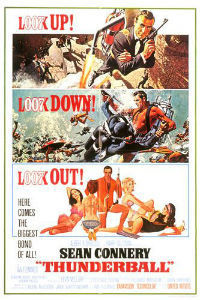
Tom: As I expected, your
questions for former CIA
officer Henry Crumpton, posted as comments or e-mailed to me, were better
than mine. So you guys got to ask most of them. Here goes.
Best Defense reader: Do you know who actually made the decision
not to reinforce your people at the battle of Tora Bora? How engaged were
Secretary Rumsfeld and President Bush in the operational details, and did they
intervene at any point to specify a different approach or overrule General
Franks?
Henry Crumpton: I spoke
with General Tommy Franks, CENTCOM Commander, about the need for more American
forces at Tora Bora within hours of the request from my men in
Afghanistan. The details of that conversation are in the
book. I do not know if he spoke with the president, secretary of defense, or others about my request.
Several days earlier I did have a
conversation with President Bush in the Oval Office about the possibility of
enemy leadership escaping into Pakistan. I showed him maps of the area
with possible escape routes, explaining that it would be impossible to seal
that border although I noted that more recon/interdiction forces would be
helpful. We provided our best intelligence, including confirmation
of UBL's presence, and offered our best recommendation but this was ultimately
a military decision. Finally, please note that the Tora Bora battle was
an overwhelming U.S. victory with hundreds of the enemy killed and no U.S. KIA --
but a victory blemished by UBL's escape.
Best Defense reader: Why haven't we experienced a Mumbai-like
attack, with a suicidal group creating havoc in an urban area with small arms
and explosives? Is something like that not important to any terrorist group (if
not, why not), or are our defenses too effective, or something else?
Crumpton: The Mumbai style attack,
with a team of well trained operatives armed with small arms attacking an urban
area, has not happened primarily because UBL preferred a massive attack inside
the U.S. against an iconic target, an attack with great symbolic and strategic
value. Now that he is dead, there might be emerging AQ leaders who opt
for more traditional commando-like attacks aimed at dispersed, soft targets. The 2009 attack at Fort Hood, with 13 dead, is one example of an
isolated, successful terrorist attack in our homeland. There have been
other attempts, including approximately 10 failed attacks in NYC in the last
decade.
There would have been many more
attempts, some probably successful, if not for our offensive CT operations
abroad. There are daily operations in South Asia, Yemen, Somalia,
and elsewhere, which keep the enemy at bay. Many of the enemy must worry
about surviving (some of them, of course, do not survive) rather than attacking
our homeland.
Tom: I know that torture has long existed and been used by
governments. But I never thought that the United States would make the use of
torture official policy. Do you think I am being naïve?
Crumpton: No, you are not
naive. You raise an important point, which prompts important
questions. What is torture? (My personal view is that none of the
U.S. government approved enhanced interrogation techniques were torture -- except for water
boarding.) Are these techniques effective? (I have no experience in
these operations, but many CIA officers whom I trust believe that they are
useful. In my role as an intelligence customer while coordinator of counterterrorism at the department of state, I benefited from many reports that
came from CIA detainees.) If these techniques are effective, should we
use them? (This is a decision for the U.S. policy makers, reflecting the will of
the American people, because it goes to who we are as a society. The CIA
and even the president alone certainly should not make the decision. In
our deliberations we must ask what price we will pay for intelligence. And, what price will we pay for not using such techniques.)
Best Defense reader: It appears likely [Crumpton] crossed paths with Ali Soufan, the former
FBI agent who has been a critic of CIA. I wonder what Crumpton's opinion of
Soufan's reliability might be.
Crumpton: Yes, I did encounter Ali Soufan when he deployed
as part of a large FBI contingent to Aden, Yemen, in October 2000 to
investigate the al Qaeda attack on the USS Cole. I was there leading the
CIA response team. My impression of him at that time was positive: He was knowledgeable, hard working, and his Arabic language was especially
useful. I have no way of measuring his reliability, however, during that
time or more recently. I have not read his book or otherwise paid
attention to whatever criticism of the CIA he has made.
Best Defense reader: Was Osama bin Laden's significance
known or understood at the time he was in Sudan? Why did President Clinton
decline Sudan's offer to turn him over to us?
Crumpton: The CIA knew about
bin Laden and his emerging role as a terrorist leader when he was in
Sudan. There was extensive intelligence reporting about him. I
cannot measure the specific impact of that intelligence, however, on the policy
makers who received the reporting -- although I can surmise it was minimal
given the weak policy response then and throughout the coming years, until
9/11.
Tom: Was VP Cheney's office a help or a hindrance to your
operations?
Crumpton: The vice-president seemed
quietly supportive of our Afghanistan campaign during the fall of 2001. He seemed to endorse my briefings with nods of approval and occasional
constructive questions and comments. He was always polite and encouraging
to me in these meetings. His leadership role in the U.S. invasion of Iraq,
however, set back our efforts in Afghanistan and hurt our intelligence and
foreign policy relationships with many Middle Eastern and other allies.
Best Defense reader: What do you miss most about the clandestine
life?
Crumpton: My friends in the CIA,
other U.S. government organizations, and foreign allies, including some heroic unilateral
sources. I do not miss U.S. government employment. My 26-year run was
wonderful, the realization of a boyhood dream to serve our nation. But,
now, I love the private sector, especially serving some great clients with great
missions of delivering free market power to many parts of the world. I
also love the creative freedom and opportunities available to a small business
leader and entrepreneur.
Tom: Which national security commentators do you follow, if any?
Crumpton: David Ignatius,
Fareed Zakaria (read his book: The
Future of Freedom), Tom Friedman, Elliot Cohen, Peggy Noonan, Steve
Coll, David Brooks, Lee Kwan Yew, Joseph Nye, Martin Indyk, James Fallows,
Zbigniew Brzezinski, and of course Sun Tzu.
Tom: What is the origin of the feud between you and David Kilcullen?
Crumpton: I did not know there
was a feud. Perhaps a brief history? I met David at a Johns Hopkins
SAIS conference in 2005 and soon thereafter hired him as a strategist working
for me when I was the coordinator for counterterrorism at the department of state. This was an unprecedented bureaucratic and political feat --
hiring an Australian national in that new role -- thanks to the intervention of
DNI John Negroponte and others. This effort, I believe, helped advance
the important security relations with one of our most important and effective
allies, Australia. David proved very competent and worked tirelessly,
helping me develop regionally-based counterterroism strategies.
In early 2007 General David Petraeus
called me and asked if I would loan David to him, to help craft a
counterinsurgency plan for Iraq. I agreed. A couple of years
later, after I had launched my consulting firm, I hired David again. He
worked for me in that private sector capacity for a year, then departed to
pursue other work. I hope that he will continue to contribute to our
collective understanding of irregular warfare.
Best Defense readers: What is your favorite movie about
intelligence operations? Your favorite novel? And which do you think are the
worst?
Crumpton: Movies. Thunderball....okay...okay....not a
great instructive film or a great work of art, but it had a profound influence
upon me as a young boy and helped inform my dreams of national service and
grand adventure. One of the great suspenseful espionage movies: North by Northwest. One of the
worst spy movies: Syriana.
Books. The novel Body
of Lies by David Ignatius,
particularly the focus on the relationship between the CIA operations officer
and foreign liaison chief, and the operations officer and a local unilateral
agent. Other novelists such as Le Carre and Greene are superb artists but
I grow weary of the pitiful moral angst, self-loathing, and pessimism that
permeates their novels. For a great instructive biography, read Sir
Richard Francis Burton by Edward Rice. What a brilliant, brave
operative who epitomized empathetic understanding of diverse cultures and the
collection of deep, profound intelligence. The worst spy book . . . too
many to list.
Best Defense reader: What advice would you give to a young
person who wants to become an analyst for the CIA?
Crumpton: Know yourself. If you don't get that right, nothing else
matters including your analytical judgments, which will be skewed and
contorted. Knowing yourself requires constant testing and measurement,
which only happens in stressful, real-life environments. So get out of the
classroom and employ and hone your intellectual virtue. Then, reflect
upon your actions, recalibrate your course as needed, and practice and practice
with deliberate reasoning, emotional value, and enthusiastic optimism. Never quit -- while remembering that a sense of discipline will keep you alive
and a sense of humor will keep you sane.
Weird stuff on the Kazakh-Chinese border -- and also 'Buddhist vigilantes' in Burma
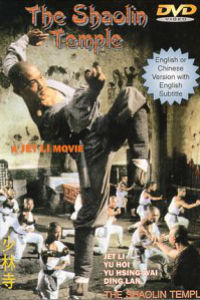
I usually write this blog around 6 or 7 in the morning.
There are days when my eyes kind of glaze over as I look at the overnight world
news headlines: Bombs in Baghdad, drone strikes in Pakistan, and plane crashes
in Nigeria.
So when some news comes out of an unexpected place, I pay
attention. Few places on the planet can be more remote than a border post
between Kazakhstan and China. That's where 14 soldiers and a game warden recently
were killed in an unexplained incident. Reuters suspects
drug smuggling. For all we know, could be a feud with aliens.
Another item about another obscure location from the same
agency reports that "Buddhist
vigilantes" attacked Muslims in western Burma. Isn't "Buddhist vigilantes" a
bit like "Marine Corps pacifists"?
A hidden cost of the V-22?
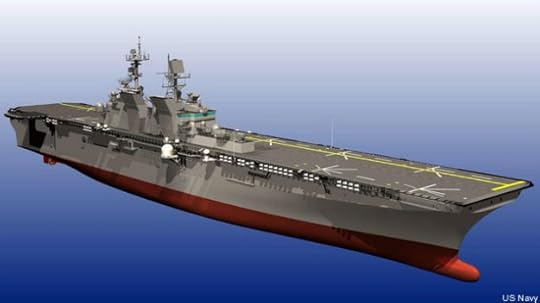
The new amphibs (I still think we should just call them
"small carriers") won't
have a well deck. Two questions: Is this to better accommodate the V-22?
And how serious is the
loss of the well?
(HT to "Semp Fi")
June 4, 2012
To fix PME, decide whether you are training or educating officers -- and do it!
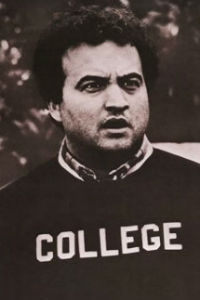
By LTC
Jason Dempsey, USA
Best
Defense department of PME reform
The Scales
and Kuehn
discussion on PME has piqued a long-running interest of mine in the failures
of professional military education (PME). While obviously I am more with Scales
in my overall assessment of the system, I think Kuehn's piece helps frame the
debate because it highlights some of the confusion over the purpose of PME.
Specifically, it seems our colleges cannot decide whether they are in the
business of training or educating. This confusion has led to a muddied
curriculum and a faculty that is required to cover both educating and
training, and which as a result fails to do either one very well. This was
briefly mentioned in the panel comments, but I think deserves further
elucidation as the root source of the failure of PME (and I'll limit my focus
here to CGSC).
For
starters, let's look at the faculty. These are typically officers on the verge
of retirement who have been out of the operational force for several years and
are interested in academia, but have not yet completed advanced degrees or had
any classroom experience outside of the military system. This places them on
the fringes of both the operational force and academia. Yet we ask them to
cover both the 'core curriculum' and electives, essentially
guaranteeing mediocrity in both areas. Kuehn's call for a renewed
emphasis on the split between the core and electives portion of CGSC is
refreshing, but doesn't go far enough.
The
'core curriculum' at our service colleges should be restructured with a
singular focus on training officers for the command and/or staff
responsibilities they are about to assume. This is largely the case now, but
the focus should be similar to what occurs at the pre-command courses, where
senior leaders rotate in to provide insights, mentorship, and current
operational perspectives. At CGSC this would mean that commanders and their
staffs at the brigade and battalion levels would be the ones rotating in to
instruct and to facilitate scenario-driven staff exercises. This would ensure
that students received the most relevant training available while reinforcing to the officer corps the importance of taking the time and effort to properly
train the next generation.
As for
the elective portion of PME, at least at CGSC, the list of offerings should be
considered an outright embarrassment. Again, because of not understanding the difference
between training and education, valuable time -- that could be spent broadening -- is
instead spent on 'courses' that are mere recitations of doctrinal manuals or
job descriptions and are about as far as you can get from anything broadening
or academically rigorous ('Logistics for the Battalion XO', etc.). This is not
to say that there are not great instructors and courses out there (the history
departments are indeed strong, and I'd be remiss not to tip my hat to Don
Connelly for carrying the torch for the study of civil-military relations).
But, as Kuehn notes, these few good courses are drowned out in a curriculum
that could only charitably be described as vo-tech for field grades. So long as
we aren't kidding ourselves that this is a broadening experience or equivalent
to education, fine, but if we are serious about the need to get officers to
think critically and out of their comfort zone than it is this portion of PME
that needs the most restructuring.
Personally,
I'd be for replacing the elective periods with sending officers off to get one
year graduate degrees -- let the experts in education educate, while the Army
focuses on training. But in the end, no significant reforms will take place until we
recognize the differences between training and education, and decide which our
PME system should focus on.
Lt. Col. Jason Dempsey is
a career infantry officer and a graduate of a couple levels of PME, including
the infantry officers basic course, the amphibious warfare school at Quantico,
and CGSC. He also holds a PhD from Columbia University and is the author
of Our
Army: Soldiers, Politics and American Civil-Military Relations.
The court-martial of Col. Johnson

The court-martial of Col.
James Johnson III, once the high-flying commander of the 173rd
Airborne Brigade, is scheduled to begin next
week in Germany. (His wife helpfully gave the investigatory report to the Fayetteville
Observer.)
He faces 27 charges of false official statements, forgery,
fraud, conduct unbecoming, adultery and
such. I've been searching my memory and can't remember a similar case. The one
that comes closest is the general who was based in Turkey, retired, and then
about 15 years or so ago got recalled to active duty to face a similar set of
charges.
Chandrasekaran and Coll on Afghanistan
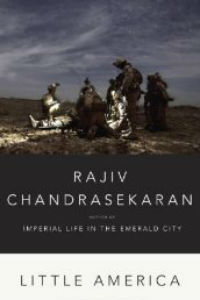
You couldn't find a better duo in journalism to discuss the
Afghan war. Here is your big
chance, later this month.
While I am at it, here is the RSVP form for the CNAS annual conference, the
Woodstock of wonkery. It is on June 13.
June 1, 2012
Were the Israelites a 'Melian'-like group on whose world view our culture stands?
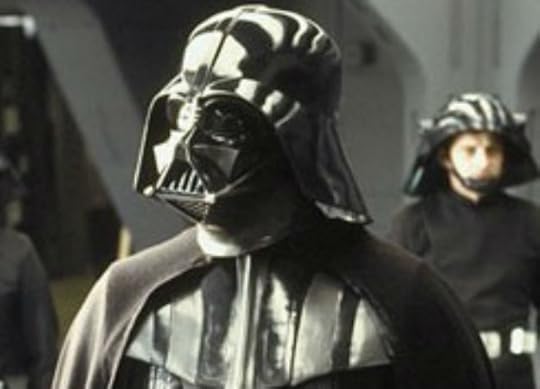
One of my side projects this year has been reading the
entire Bible
cover-to-cover for the first time. Starting at the beginning and staying with
it throughout, I find, makes the whole thing more coherent. (It also sometimes
feels surprisingly current: "Damascus
is waxed feeble, and turneth herself to flee, and fear hath seized on her."
-- Jeremiah 49:24.) I mean, ripped from today's headlines.
The other day I was struck by Jeremiah 46:13, which offers
an aside about the Lord telling the prophet that the "king
of Babylon should come and smite the land of Egypt." That passage reflects
the larger fact that a big chunk of the Old Testament is about the Jews being
squeezed between the Persians, the Babylonians, the Assyrians, and the
Egyptians. In other words, about a small, endangered people facing the
predations of empires.
This made me think about the revenge
of the Melians,
another small people
who were caught between greater powers, and who also got squashed. What does it
mean that the Old Testament, the bulk of the central book of our culture, is
written from the point of view not of one of the great powers, but of a small
nation that is eventually destroyed by them? Is this why we instinctively side
with the rebels and against Darth Vader? If so, how does that unconsciously
shape our strategic thinking? Are we inherently more likely to succeed when
aiding rebels than we are when fighting them?
Thomas E. Ricks's Blog
- Thomas E. Ricks's profile
- 436 followers



